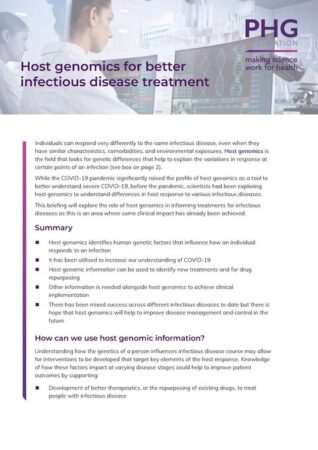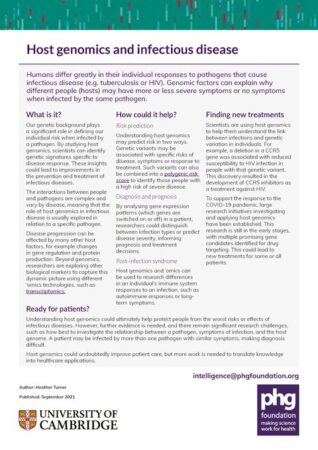Humans differ greatly in their individual responses to pathogens that cause infectious disease (e.g. tuberculosis or HIV). Genomic factors can explain why different people (hosts) may have more or less severe symptoms or no symptoms when infected by the same pathogen.
The science of host genomics examines the interconnectedness between our personal genetic signatures, pathogens and disease processes. With this information, scientists could discover ways to improve prevention and treatment of infectious diseases.
Host genomics is a rapidly developing science and our work provides timely and relevant intelligence to help policy-makers and other stakeholders keep pace and support the delivery of real benefits for human health.
Pathogens, symptoms and the human host
Interest in the interconnection of host genomics has grown, particularly during the COVID-19 pandemic. But the relationship between a host (in this instance, the human) and a pathogen, and the severity of symptoms from infection, is complex and can vary by disease. The PHG Foundation is exploring how host genomics might be used to predict severe disease and inform acute care.
During the pandemic, several studies and clinical trials have been established to understand the genetic factors underlying disease progression in patients seriously ill with the SARS-CoV-2 virus. Studies such as these could improve management and understanding of risk prediction, including the use of polygenic scores. The impact of host genomics will also be affected by other factors already known to play a role in health, such as transcriptomics, proteomics and immunogenomics.
Focusing on areas such as optimal research design in the science of host genomics, we are looking at the policy implications of implementing host genomics in health systems, beyond the research setting.
If you would like to know more about this project, please contact Laura Blackburn.


